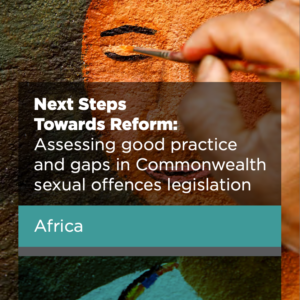Rwanda made significant reforms to its sexual offences law in late 2018 in a new penal code, the Law Determining Offences and Penalties in General, No 68/2018, (PC). The Law relating to the Criminal Code of Procedure (No 30/2013) applies to criminal matters, including sexual offences, but does not contain provisions relevant to this review.
Positive elements in the amended PC laws that meet the good practice standards applied in this report include: an updated offence of rape that covers all forms of non-consensual penetrative sex and not only ‘sexual intercourse’; gender-neutral sexual offences; and criminalising marital rape and sexual assault. Consensual sexual activity with a person with a disability or between people of the same sex are not crimes.
In a number of other respects, the sexual offences in the amended PC do not meet good practice standards. For example, there is no express definition of consent as free and voluntary agreement. The legislation does not state that there is no requirement for evidence of resistance to the assault, such as physical injuries, to prove that sexual activity took place without consent. While marital rape is a crime, it carries a significantly lower penalty (3-5 years) than non-marital rape (10-15 years), which is discriminatory and not good practice.
There are some specific child sexual offences, but these are not comprehensive and do not cover the broad range of modern offences, such as grooming. In some sexual offences, the PC uses non-legal, moralistic terms, such as ‘defilement’ of children, a term that is associated with the loss of virginity rather than a criminal assault on bodily integrity. A limited close-in-age defence to protect young people from being prosecuted for consensual sexual activity with their peers is available but is inadequate.
Rwanda is a state party to relevant international and regional human rights treaties, including the Convention on the Elimination of All Forms of Discrimination against Women, Convention on the Rights of the Child, Convention on the Rights of Persons with Disabilities, International Covenant on Civil and Political Rights and Convention against Torture and Other Cruel, Inhuman or Degrading Treatment or Punishment. Rwanda is also a party to the African Charter on Human and Peoples’ Rights and Protocol to the African Charter on Human and Peoples’ Rights on the Rights of Women in Africa (Maputo Protocol).
The full assessment of Rwanda is available here.



